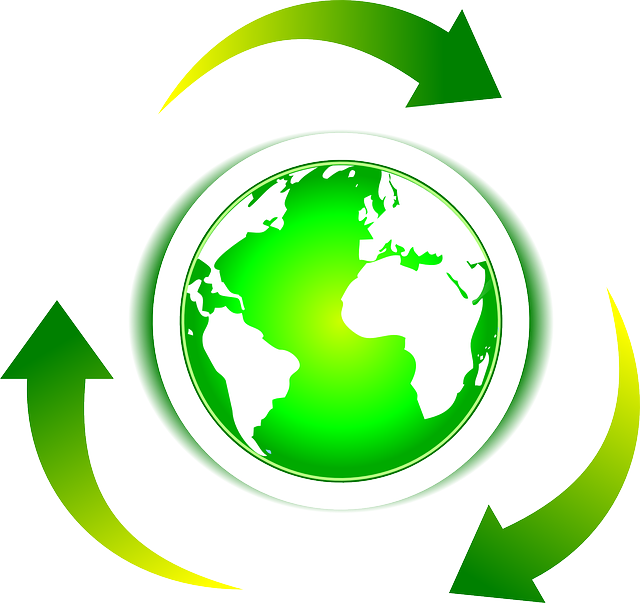In the United States, we generate about 4.5 pounds of trash per person per day. The majority of this garbage ends up in landfills where it will sit for years, if not centuries. However, recycling has come a long way in recent years and there are now more options than ever for reducing our waste.
One of the benefits of recycling is that it helps to conserve resources. For example, when paper is recycled it uses far less water and energy than making new paper from scratch. In fact, according to the Environmental Protection Agency, recycling one ton of paper saves enough water to supply the needs of four families for six months!
Another benefit of recycling is that it reduces pollution. Making new products from recycled materials creates far less pollution than making them from scratch.
There are many ways to use recycling to help the environment. Recycling can help reduce the amount of waste that goes to landfills, which can save energy and reduce greenhouse gas emissions. Recycling also creates new products from used materials, which can help reduce the need for new materials and
energy.
If you’re looking to start recycling but don’t know where to begin, this guide is for you. Recycling can seem daunting at first, but it’s actually quite easy once you get the hang of it. Here are a few tips to help you get started:
1. Start small. You don’t have to go all-in from the beginning. Just start with a few items that you know you can recycle, such as paper and plastic.
2. Find a local recycling center. This will make it easier for you to recycle on a regular basis.
3. Educate yourself on what can be recycled. This way, you’ll know exactly what goes into the recycling bin and what doesn’t.
So What Can Be Recycled?
In a world where it seems like everything is disposable, it can be hard to know what can be recycled. The good news is that there are actually a lot of things that can be recycled! Here are some examples:
Paper: This includes items like newspapers, magazines, office paper, and cardboard. Most types of paper can be recycled, so next time you’re about to throw something away, check to see if there’s a recycling symbol on it!
Plastic: Many different types of plastic can be recycled, including bottles, containers, and packaging. Before you toss that plastic bottle in the trash, see if your local recycling center will take it!
Glass: Glass can be recycled over and over again without losing any quality. So next time you finish a glass of water or soda, make sure to recycle it instead of throwing it away.
By following these simple tips, you’ll be on your way to becoming a recycling pro in no time!
What Are Some Recycling Benefits?
Many people don’t realize all the benefits of recycling.
Recycling helps to conserve our natural resources.
It also reduces pollution and saves energy.
All of these things help to improve our environment.
Recycling is also good for the economy as it creates jobs and helps to keep money in our local communities.
So, not only is recycling good for the planet, it’s also good for us!
The Future of Recycling: What Does It Hold?
It’s no secret that recycling is becoming increasingly important as we strive to protect our environment. But what does the future hold for recycling? Here are some predictions:
1. Recycling will become even more important
As the world becomes more aware of the need to protect our environment, recycling will become even more important. More and more people will recycle, and businesses will be under pressure to adopt more sustainable practices.
2. It will become easier to recycle
As recycling becomes more popular, there will be more initiatives to make it easier. This could include more recycling bins in public places, more recycling facilities, and more education on what can be recycled.
3. We will recycle more materials
At the moment, we typically recycle paper, glass, plastic, and metal. But in the future, we will recycle more materials, such as electronics, batteries, and construction materials.
4. Recycling will be more efficient
As recycling technology improves, it will become more efficient and less wasteful. This means that more materials will be recycled, and less will end up in landfill.
5. We will reuse more materials
In addition to recycling, we will also focus on reuse. This could involve repairing broken items instead of throwing them away, or using recycled materials to make new products.
As we become more aware of the impact our lifestyles have on the environment, we will adopt more sustainable habits. This could include eating less meat, using less water, and travelling less.
7. We will see more zero-waste initiatives
There is a growing movement towards zero waste, which aims to reduce the amount of waste we produce. This could involve using reusable products, composting food waste, and avoiding single-use plastics.
8. Recycling will be mandatory
In some countries, recycling is already mandatory. In others, there are laws in place to encourage recycling. In the future, it is likely that recycling will be mandatory in many countries around the world.
9. There will be a global recycling infrastructure
At the moment, recycling infrastructure varies from country to country. But in the future, there could be a global recycling infrastructure, making it easier to recycle materials no matter where you are in the world.
10. We will have a circular economy
A circular economy is one in which resources are reused and recycled instead of being thrown away. This could involve using recycled materials to make new products, or using waste as a source of energy.
These are just some of the predictions for the future of recycling. It’s clear that recycling is going to play an even more important role in our lives in the years to come.






5